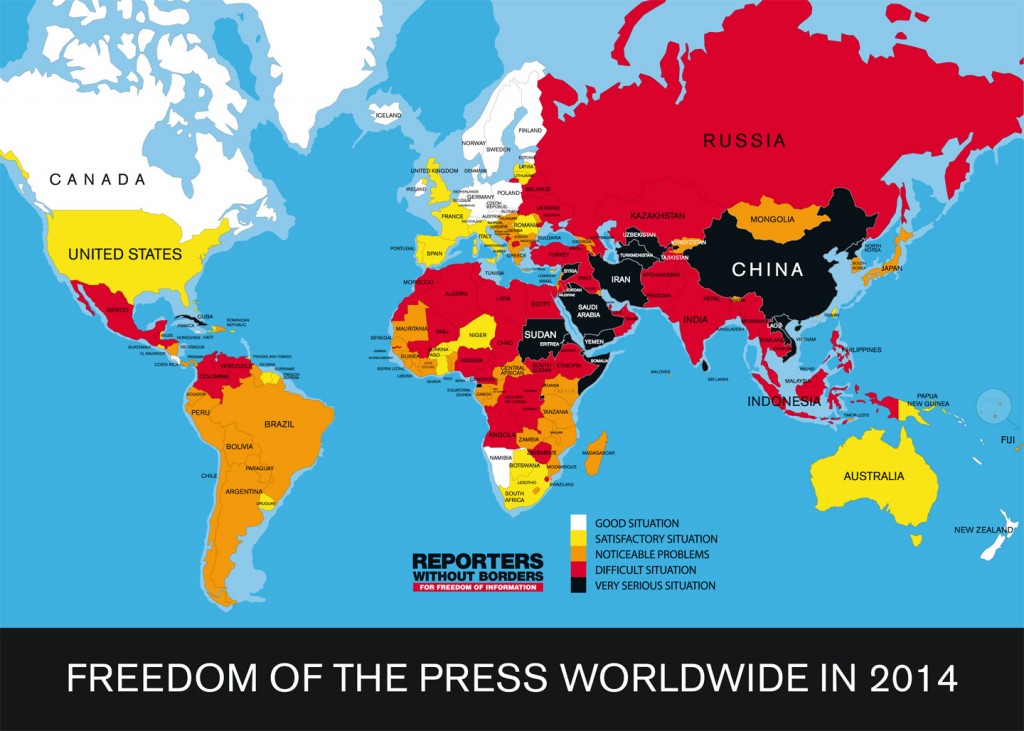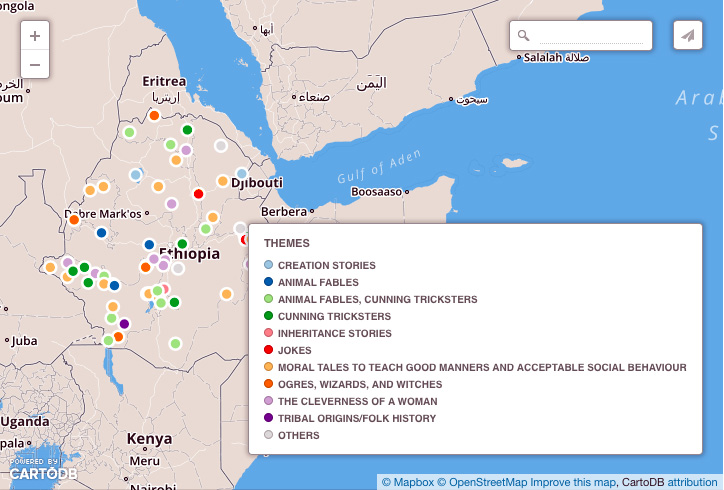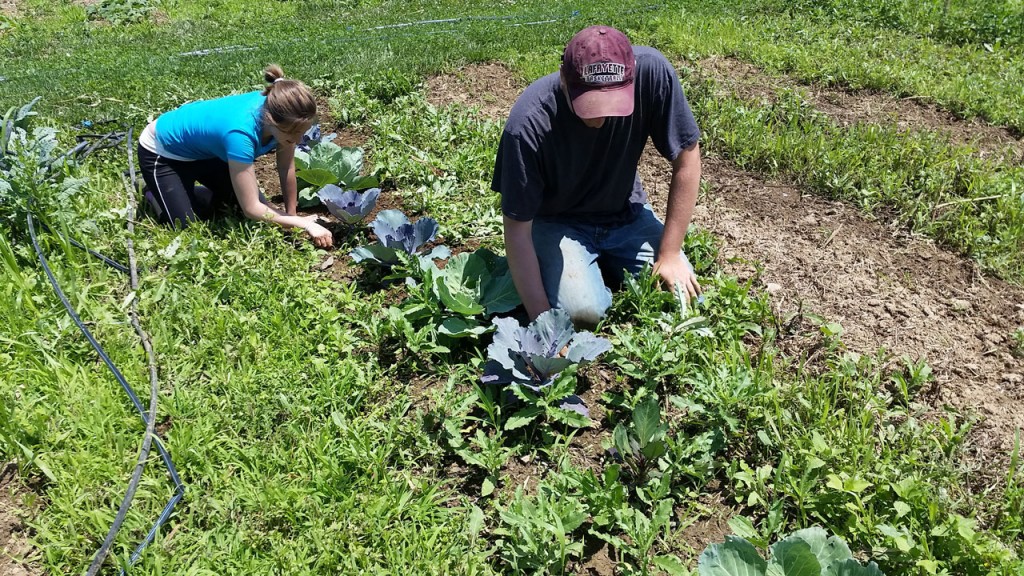Using New Technology to Answer New Kinds of Questions
Freedom of the press in Turkey. Ethiopian folk tales. An app for finding fresh produce.
These are just some of the projects students designed during a six-week internship using digital tools and computational techniques to explore humanities-based topics and problems.

Ian Morse’s interactive map shows the various levels of freedom of the press in different countries.
The seven students were the first members of the College’s Digital Humanities Internship program, funded by a grant from the Andrew W. Mellon Foundation and supported by Skillman Library’s Digital Scholarship Services. The program is one of several meant to facilitate the use of technology in the humanities.
President Alison Byerly will be hosting a discussion 4 p.m. Thursday, Oct. 1 in room 104 of Kirby Hall of Civil Rights about the role of digital humanities in liberal arts education and how the grant is supporting teaching and research on campus.
During the summer, the students collaborated as a group under the guidance of Emily McGinn, postdoctoral fellow in digital humanities at Skillman Library.
Ian Morse ’17 (Nutley, N.J.), a double major in history and mathematics-economics, tackled freedom of the press in Turkey. An avid contributor to The Lafayette student newspaper, he was struck by government suppression of news outlets when he studied abroad there last semester.

This interactive map by Feevan Megersa represents Ethiopia’s ethnic diversity using regional folktales.
Morse got a glimpse of what digital humanities can do when he worked with Paul Barclay, associate professor of history and chair of the Asian studies program, through the EXCEL Scholars undergraduate research program to study how the experience of indigenous peoples has changed over time and space. Morse’s part was largely theoretical, but the project’s ultimate goal is a map populated by events about the interaction between states and non-state peoples.
Having students who are accustomed to high-level research like the EXCEL program makes digital humanities a perfect fit for undergraduates on College Hill, explains McGinn. She quickly points out that digital humanities is not a replacement for traditional inquiry on humanities topics but a complementary set of tools to open new avenues of research.
“While digital humanities courses are becoming more common at the graduate level, they are incredibly rare at the undergrad level,” she says. “Because of programs like EXCEL, there is a real opportunity for the cross-fertilization of STEM (science, technology, engineering, and mathematics) and humanities disciplines. Our digital humanities initiatives have consisted not only of using STEM tools in humanities classrooms, but also of asking humanities questions in STEM classes.”
When he became curious about media freedoms in Turkey, Morse recognized that digital humanities is an untapped resource.
“Measuring media freedom with newspapers is one of these very big topics that I don’t believe has made full use of what digital humanities can do,” says Morse. “Without the knowledge provided by digital humanities, I would not be able to improve on press freedom and journalistic studies.”

Miranda Wilcha ’16 and Peter Todaro ’17 do some weeding at the LaFarm Organic Farm. They created an app and website that helps Easton residents have access to fresh local produce.
Most of all, digital humanities gives students the confidence and freedom to explore topics on which they may not have much expertise. Take Feevan Megersa ’17 (Silver Spring, Md.), for example. After arriving at Lafayette, she realized that she missed hearing many of the Ethiopian folktales she grew up with.
Digital humanities has enabled her to map recurring themes and highlight the moral behind each folktale. She selected five folktales from each of the 13 regions within Ethiopia to represent the country’s ethnic diversity.
“You don’t need to be an expert in one field in order to research a particular topic. You just need the willingness to want to know more,” says Megersa, a double major in policy studies and film & media studies. “One of the great things about navigating the digital space is that much of the technology is intuitive. It was quite rewarding to go from having little technical understanding about different online tools and resources to designing a website.”
Megersa and Morse will be joined by EXCEL Scholar Jethro Israel ’16 (Plainfield, N.J.) to discuss their work as student researchers and project developers at Bucknell University’s Digital Humanities Conference this November. Morse also will present his work as a part of the NextGen Plenary session highlighting student projects. Vincent DeMarco ’17 (New Canaan, Conn.) and Ben Draves ’18 (Alliance, Ohio) will present their project on the connections between musical composition and society during the poster session at the conference.
Other interns included Ahmed Braxton ’17 (Washington, D.C.), who analyzed the economic and social situations of people experiencing gentrification in Washington, D.C., and Miranda Wilcha ’16 (Stroudsburg, Pa.) and Peter Todaro ’17 (Orefield, Pa.), who created an Android app, web-based map, and plain text list of food providers and producers in the Easton community so that residents have access to fresh local produce.